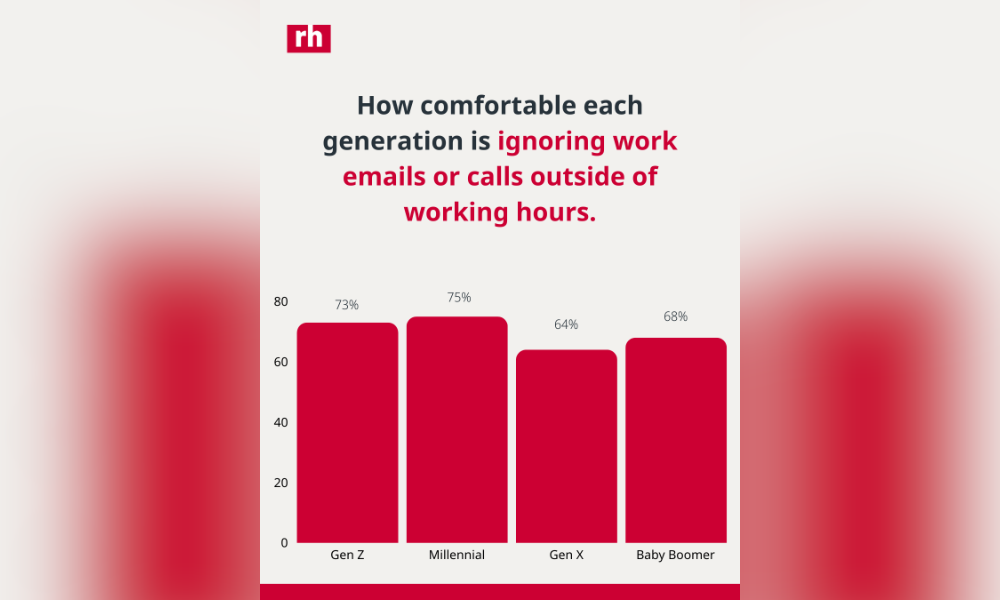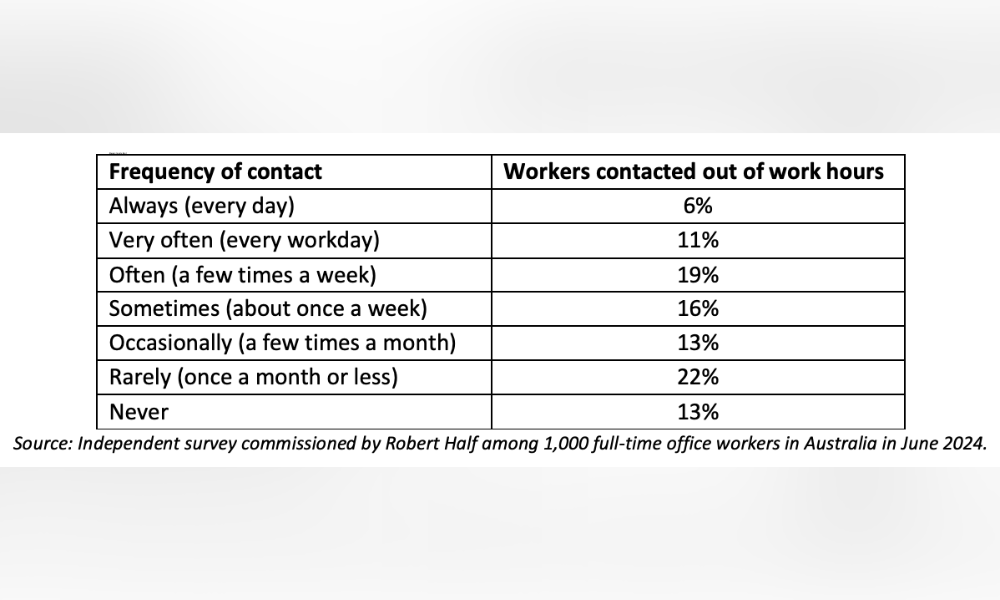
'For those businesses who rely heavily on after-hours availability, there will be increased focus on delivering more efficient and streamlined operations'

A majority of Australians are optimistic about the impact of the right to disconnect as it takes effect in most workplaces starting Monday, according to a survey from Robert Half.
Its poll among 1,000 full-time office workers revealed that 92% are expecting positive impacts on both their work and life because of the right to disconnect. To be specific, they are expecting the following gains:
Nicole Gorton, director at Robert Half, said the upcoming right to disconnect is a "game changer for work-life harmony" in Australia.
"It empowers employees to reclaim their personal time and disconnect from the potential pressure of work-related communication, something we hear often from candidates who look for balance in a role," Gorton said in a statement.
She added that it will also reduce burnout and stress among employees from after-hours contact, while improving employee morale and reducing turnover.
"The 'right to disconnect' is not just a new rule, it's a cultural shift, further emphasising the increased focus on employee wellbeing and mental health."
Australia's right to disconnect will allow employees to ignore contact from employers outside of work hours - a policy that 70% of Robert Half's respondents said they would be comfortable doing.

Source: Robert Half
This sentiment comes as 36% of employees reported getting contacted after their shift by their employers, including 19% who get contacted a few times a week.

Gorton said the amendment to Australia's Fair Work Act will require a "shift in mindset and communication" practices among organisations.
"For those businesses who rely heavily on after-hours availability, there will be increased focus on delivering more efficient and streamlined operations," she said.
She added that the reforms will also open new conversations on work expectations and company culture, which can set organisations up for success.
"As cited by workers themselves, the 'right to disconnect' is expected to significantly improve employee wellbeing and job satisfaction," Gorton said. "When employees feel empowered and have control over their time, they're generally more engaged and productive during work hours."